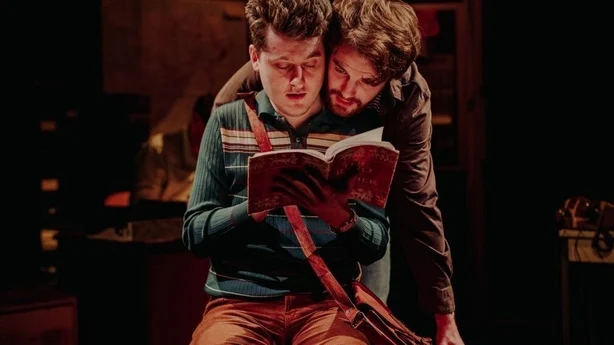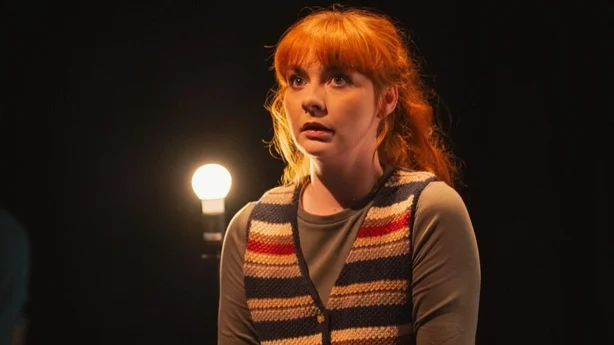Dec 24, 2024
Nov 04,2024
Callings, a new play by Belfast-based theatre company Kabosh, celebrates the activism of the dedicated people who set up the helpline Cara-Friend 50 years ago to offer support and friendship at a time when homosexuality was still illegal in the North.
The drama, written by Dominic Montague, is set in the offices of Cara-Friend in Belfast's University Street five years after the helpline was set up, when the North of Ireland was the only part of the UK where homosexuality was still a criminal offence.
Ahead of a run at Dublin's Project Arts Centre, Dominic Montague introduces Callings below...
I first heard about the founding years of the Cara-Friend Gay Helpline whilst researching another play set in that same period. Instantly I knew I wouldn't be leaving the 70’s and 80’s anytime soon.
Founded in 1974, against the backdrop of the conflict and pervasive state and church sanctioned homophobia, Cara-Friend operated outside of the law and under the nose of the church(es) to provide a lifeline for queer people across the North, especially those living in isolated and rural communities. Founded by a group of individuals, on its first day the number of incoming calls crashed the switchboard. It operated as a letter only service until they secured their own phone network. The service grew and grew from there. Those individuals saw that people needed community, so they went out and made it. They didn’t wait for permission. They didn’t ask for approval. They just did it.

In a coincidence of fate, I had for several years previous to encountering the story, been a listening volunteer for an emotional support helpline. I knew how transformational those experiences can be. Might seem like a small thing, a conversation on the phone with a stranger, but those moments can shift the courses of lives.
That’s what Cara-Friend did. It changed lives. It saved lives.
As a writer, it’s an interesting process, catapulting yourself into the past. I start with archival material, particularly newspapers, for a grounding in what opinions were sanctioned at the time, what voices were platformed. You always think it will be a culture shock, which in some ways it is. In others, the past remains unrefreshingly familiar.
It was vital for the truth of the play that it didn't just focus on the darkness of the period, but was also filled with humour, warmth and passion.
The most valuable part of the research process was connecting with people who were instrumental in the service. I was fortunate to spend time with several founding members of Cara-Friend, including Doug Sobey and Brian Gilmore. Their generosity and openness gave Callings its grounding in the truth of the early years of the organisation.
It was important that both callers and volunteers were placed centre stage. To do this I knew that the characters had to be fictional and not based on specific individuals. This was especially true of the callers. Cara-Friend has an extensive archive of their correspondences. I made the decision to not access them. There’s a sacredness to the confidentiality of those moments that I wanted to respect. Talking to the volunteers who manned the phones gave me the recurring issues and obstacles faced so I could craft fictional characters that captured something essential about the world at that time.

It was vital for the truth of the play that it didn’t just focus on the darkness of the period, but was also filled with humour, warmth and passion. When researching Callings and my previous play A Queer Céilí at the Marty Forsythe, the last question I asked in every interview was, what one thing do you want the audience to know about that time? The most common answer was along the lines of, it was difficult, we fought hard, but also… we had the craic, we made lives for ourselves.
That truth is embedded in the play because that’s what people were fighting for, their right to freedom, their right to joy. Many of the people involved in the formation and early years of Cara-Friend might not have considered themselves activists, they saw themselves as ordinary people. That is something worth celebrating, ordinary people doing extraordinary things. A reminder we all have the power to shape the future. It’s a privilege bringing that story to audiences across Ireland and beyond.
Callings is at the Project Arts Centre, Dublin from November 6th - 9th - find out more here.